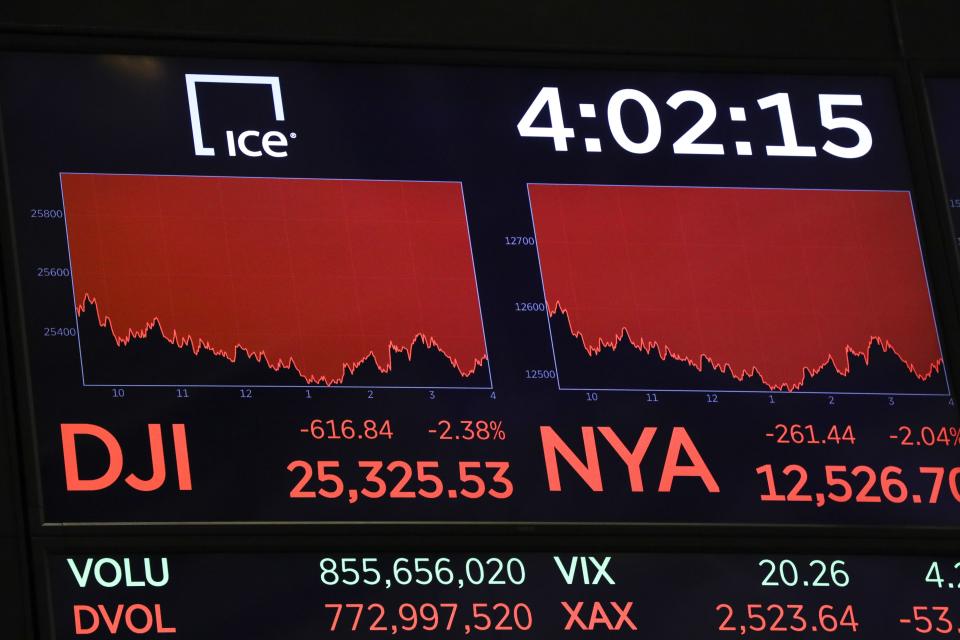Why did the Dow just plunge 617 points? Look at Trump's trade war with China

With the Trump administration hiking tariffs on $200 billion in Chinese goods, and China retaliating in kind with tariffs on $60 billion in U.S. imports, much attention has turned to what these actions might mean for the economy.
There is good reason for this. Economists estimate that a prolonged trade war would raise prices on a wide array of consumer goods and shave about 0.4% from estimates for economic growth. That's the main reason the Dow Jones Industrial Average plunged 617 points on Monday.
But there is more to the episode than economics. The president's use of tariffs as a negotiating cudgel violates the spirit, if not the letter, of the Constitution.
While few would doubt that the United States needs a new trading relationship with China, which forces foreign companies to cough up their intellectual property and heavily subsidizes its own industries, the unilateral way in which Trump is acting is nothing short of breathtaking.
The tariffs, which were raised to as high as 25% last Friday, are a tax that functions almost identically to sales taxes.

OPPOSING VIEW: 3 reasons why hardball tactics against China just might work
To anyone who has read the Constitution, the president's unilateral declaration of tariffs should come as a surprise. Article 1 states: “The Congress shall have power to lay and collect taxes, duties, imposts and excises.”
Making matters even stranger, Trump has in the past increased subsidies to American farmers harmed by retaliatory tariffs and said Friday that he'd use tariff receipts to buy agricultural goods.
These expanded farm subsidies also run against constitutional principles, most notably the section that says no money should be drawn from the Treasury unless it has been legally appropriated.
Trump gets away with these things because Congress and the courts long ago decided to create extra-constitutional powers for the president to deal with emergencies and matters of national security.
When Congress balked at paying for a wall along the U.S.-Mexico border, Trump declared an emergency under the National Emergencies Act of 1976. In a host of tariff actions, including those that adversely impact some of America's closest allies, he has drawn mostly on the Trade Expansion Act of 1962.
If an administration is to find a national security matter at stake, perhaps the Pentagon and not the Commerce Department should be responsible in making that determination. And perhaps some or all of these extra-constitutional powers granted to presidents should be temporary, with their continuation contingent on congressional approval.
It remains to be seen whether Trump's tariffs produce no deal with China, a weak deal or a deal that improves the status quo.
It's already clear, however, that the president has too free a hand to impose and lift tariffs at will. Congress’ presumption in passing these laws was presidents would wield these powers with caution and in good faith. This presumption will now have to be revisited.
USA TODAY's editorial opinions are decided by its Editorial Board, separate from the news staff. Most editorials are coupled with an opposing view — a unique USA TODAY feature.
To read more editorials, go to the Opinion front page or sign up for the daily Opinion email newsletter. To respond to this editorial, submit a comment to letters@usatoday.com.
If you can't see this reader poll, please refresh your page.
This article originally appeared on USA TODAY: Why did the Dow just plunge 617 points? Look at Trump's trade war with China

